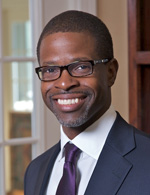Leaders inside and outside the church often talk about how difficult it is for organizations to change. That’s because it is. Communicating vision, strategic planning and some grasp of systems theory can usually help positive change happen. But anyone who has led an institution through transition knows there is another critical variable in moving toward the change we want to see: shifting the actual roles people have in leadership.
A familiar biblical story underscores the point. Moses was an effective leader. He successfully led the Hebrews out of Egypt. They had some rough spots along the way (like that golden calf episode), but Moses fulfilled his assignment. Eventually, he reached a point where he had to re-think the kind of leadership he offered in order for the community to thrive.
The community changed, but Moses had not. In Exodus 18, Jethro observed Moses preparing to serve as a judge in all of the cases and disputes as he had always done in the past. Jethro warns Moses that he must re-invent his role as a leader for the sake of the community. He cannot continue to carry out the same functions if he expects to do himself or the people any good. In this pivotal moment, Moses had to learn to lead differently.
Moses had been the solo pastor of a typical small congregation, where he was expected to attend all member birthday parties, community funerals and lock the building after special programs. Now he was the senior pastor of a large congregation where he needed to be both deeply connected with the people and to serve as the head of staff and strategic leader.
Moses did make the shift and although Scripture leaves out the details of how the change occurred, we can assume it was not as easy as saying “okay” to Jethro and voting a new leadership structure into practice. If his community was like organizations we lead today, some people thought Moses was trying to get out of doing work under the façade of delegation. Of course, anyone who has ever created a new position knows that more staff never means less work.
Some people may have wanted to keep the status quo because as long as they were close to Moses, they were close to the top. They were insiders. What would become of their status in the organization if the structure changed?
What about Moses? How would he cope with not being so intimately involved in day-to-day affairs? Was he ever tempted to take back the work he was supposed to give to others? Was he prepared to do more strategic, long-range thinking and see that kind of leadership as equally valid and authentic as solving people’s problems? Sometimes we sabotage our own success by failing to make necessary role shifts that keep us effective as our organization changes.
If an organization (or family or ministry for that matter) is changing and you are interested in re-thinking your role, you may find these questions helpful in the discernment process: What am I doing in leadership that I need to keep doing? What am I doing that I need to stop doing and allow others to do? What am I not doing that I need to do?
Moses would not have made the change when he did without Jethro. Ask someone you trust to answer these questions for you.
And be prepared for a change.
Prince Raney Rivers is pastor of United Metropolitan Missionary Baptist Church in Winston-Salem, North Carolina.








